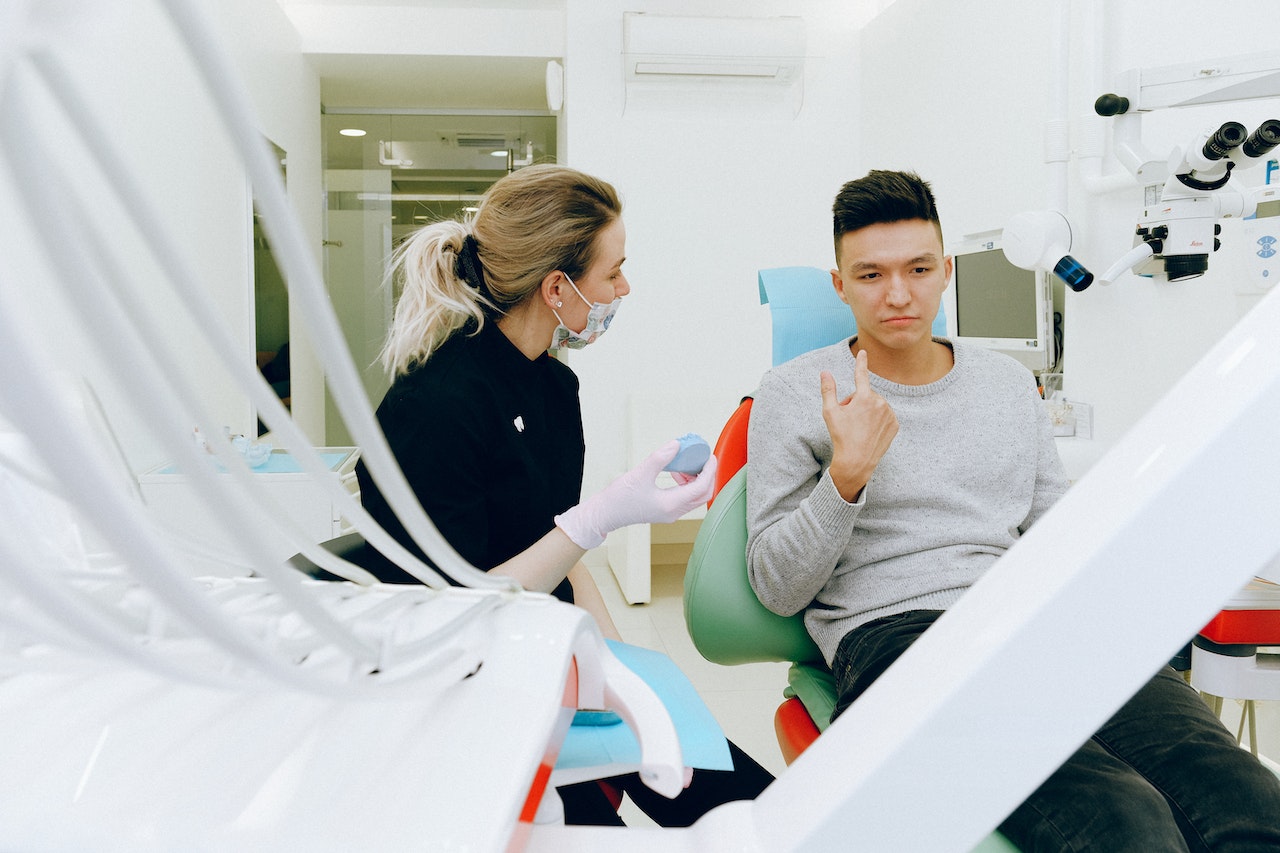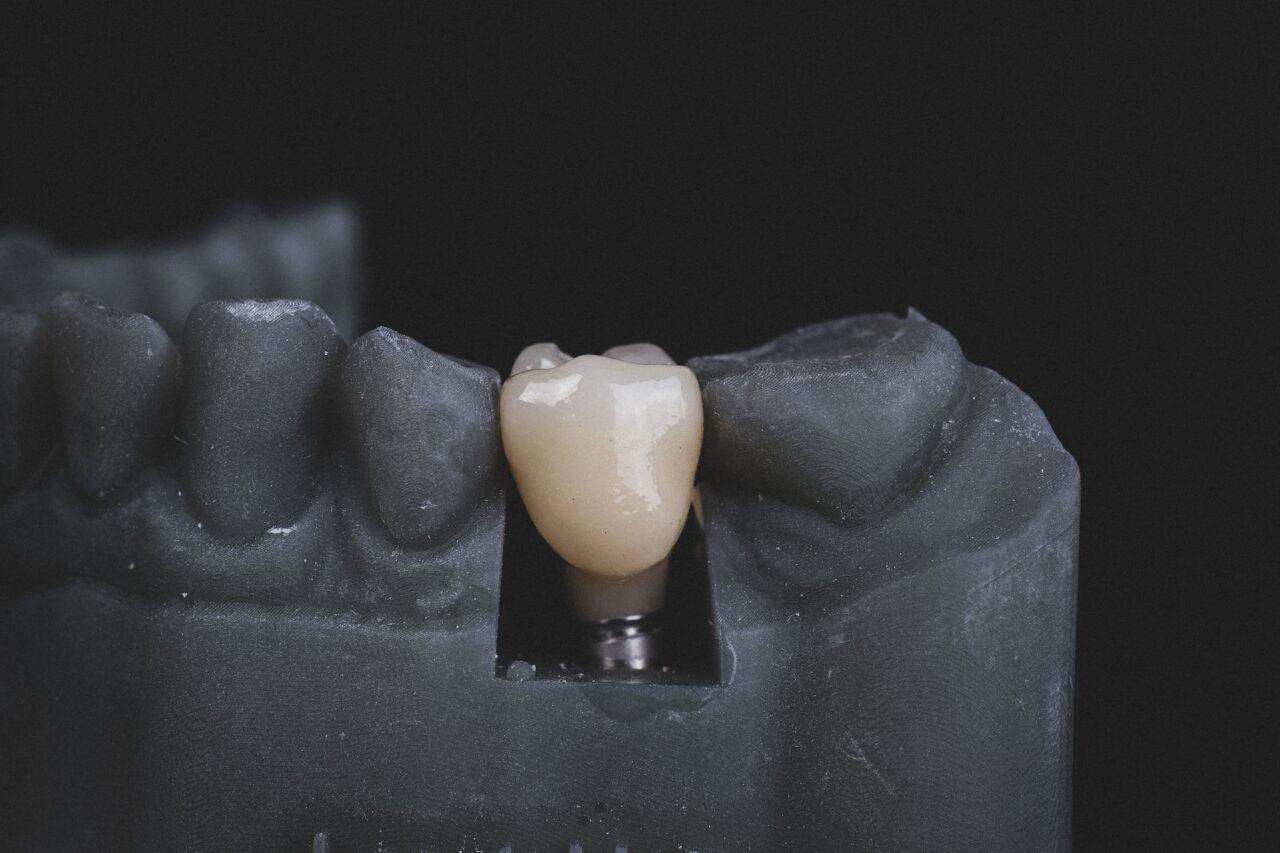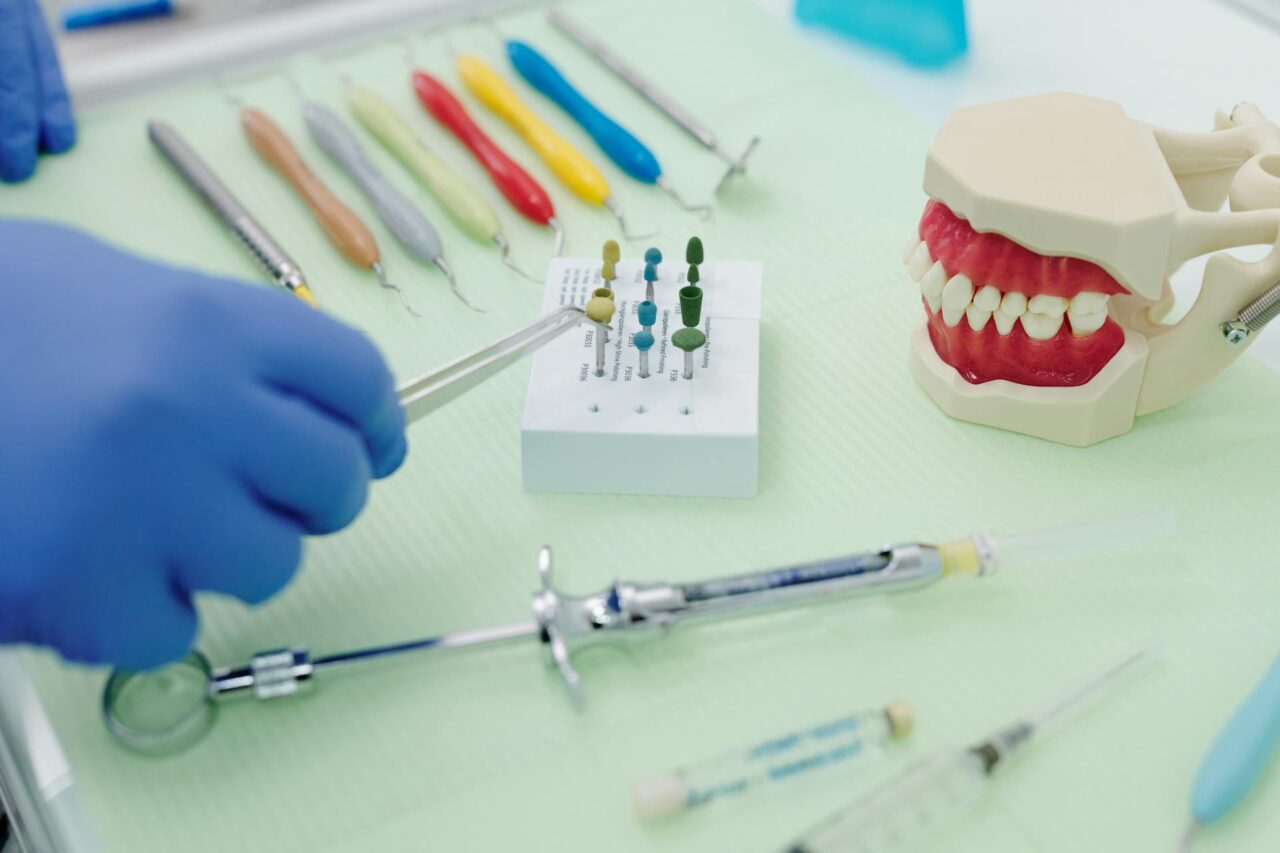
Do you sometimes realize that you’re holding back your smile, afraid to reveal the imperfections in your teeth? Damaged, misaligned, discolored, or decaying teeth can be reason enough to lose confidence in your smile. Worse still, these may even cause physical pain. That’s where restorative dentistry comes to the rescue.
Read on to find out how restorative dentistry can help and what available treatments are there.
What Is Restorative Dentistry?
Restorative dentistry is a field within dentistry that involves repairing and restoring damaged teeth back to health. The damage is often due to decay, trauma, or other oral health issues.
Through a range of procedures and treatments, restorative dentistry improves both the function and appearance of teeth. This helps patients regain optimal oral health and confidence in their smiles.
9 Common Restorative Dental Procedures
Here are a range of common restorative dental procedures that can help restore and enhance your oral health.
1. Dental Filling
Restorative dentistry utilizes dental fillings to repair teeth affected by cavities or decay. To achieve this, dentists use materials such as:
- Composite resin
- Porcelain
- Amalgam
- zirconia
A dental filling helps to restore the tooth’s shape and function and prevent further decay.
2. Dental Crowns
Dental crowns protect and strengthen damaged or weakened teeth. They’re porcelain, zirconia, or metal alloy-shaped like teeth and support the existing tooth structure.
When a damaged tooth has a dental crown, it becomes stronger and more functional. Dental crowns act as a shield, helping the tooth withstand the stress of biting and chewing.
3. Dental Bridges
Restoring missing teeth is now possible through dental bridges. These appliances consist of artificial teeth, known as pontics, which anchor to adjacent natural teeth or dental implants. Bridges aid in chewing, improve speech, and maintain the alignment of surrounding teeth.

4. Dental Implants
For a long-lasting solution to missing teeth, restorative dentistry offers dental implants. It involves fixing a titanium post into the jawbone through surgery to act as an artificial tooth root.
This provides a stable foundation for attaching a crown or bridge, resulting in a natural-looking and functional replacement for the tooth.
5. Dentures
Dentures are removable appliances that replace missing teeth and surrounding tissues. They’re custom-made to fit the mouth and restore the ability to eat, speak, and smile comfortably.
6. Root Canal Therapy
Root canal therapy treats infected or damaged dental pulp (nerves, blood vessels, and connective tissues). It involves removing the infected pulp, cleaning the root canals, and sealing them. Usually, dentists do this to prevent or stop pain.
Root canal therapy saves the natural tooth from extraction.
8. Dental Bonding
Dental bonding to repair teeth is common for treating chipped, cracked, or discolored teeth. This process entails applying tooth-colored resin materials. These materials are then bonded to the tooth surface.
Dental bonding improves the appearance and functionality of the tooth.
9. Dental Veneers
Dental veneers are thin, custom-made shells that the dentist attaches to the front surface of your teeth.
Veneers can effectively conceal dental imperfections and give you a more uniform, symmetrical and better-looking smile.
Benefits of Restorative Dentistry
There are countless reasons to consider restorative dentistry. These are the most significant benefits you can expect after a procedure.
Improved Oral Function
When it comes to restoring and enhancing your oral function, restorative dentistry is your go-to solution. With the help of restorative dentistry, you’ll enjoy the freedom to eat better, speak clearly, and smile confidently.
Enhanced Appearance
Through treatments like teeth whitening and dental implants, you can transform your dental appearance. What’s more, it allows you to get natural-looking and aesthetically pleasing restorations. This will boost your self-confidence and improve your overall facial appearance.
Prevent Further Damage
Untreated dental issues may worsen over time. Prompt restorative dentistry helps prevent further dental damage and decay. It also saves you from invasive procedures in the future.
Enjoy Long-Term Durability
Restorative dental treatments are durable, especially with advanced dental materials and techniques now available.
Dental crowns, bridges, and implants offer long-term functional advantages. They also enhance your appearance.
Preserve Natural Teeth
Your natural teeth are precious, and restorative dentistry helps retain them. Rather than resorting to extraction, restorative treatments focus on preserving and repairing teeth whenever possible. We want to preserve your natural teeth.
When your natural teeth cannot be saved, and an extraction is needed, restorative dentistry uses dental implants. These implants mimic the natural tooth structure by replacing the root and crown. They preserve the structure of your jawbone and prevent bone loss.
Improve Oral Health
Restorative dentistry doesn’t just improve your appearance; it also improves your overall oral health. Restorative treatments eliminate sources of infection and inflammation in your mouth by treating dental issues such as decay and bite problems.
Through this approach, restorative dentistry reduces the risk of systemic health issues linked to poor oral health, including:
- Cardiovascular disease
- Diabetes
- Respiratory infections
- Preterm birth
Enhance Your Quality of Life
Restorative dentistry can significantly enhance your quality of life. Restoring oral function and appearance allows you to eat, speak, and socialize comfortably.
Does Insurance Cover Restorative Dentistry?
In general, many dental insurance plans provide coverage for restorative procedures. But, the extent of coverage may vary. Here are some key points to consider.
Basic Coverage
Most dental insurance plans typically cover basic restorative procedures. This includes procedures like dental fillings at a certain percentage (e.g., 80% coverage) after deductibles. Basic coverage may also include other treatments like root canals and periodontal treatments.
Major Coverage
Restorative procedures that require more extensive treatment often fall under major coverage by dental insurance plans. The insurance company will typically cover a percentage of the cost, usually around 50%.
You’ll be responsible for paying the remaining treatment cost out of pocket.

Waiting Periods
Some dental insurance plans make you wait a while before they cover specific restorative procedures. This time is called the waiting period; you’ll only receive coverage for major treatments after it elapses.
Basic preventive care may be under coverage during this time, but coverage for more extensive procedures might not be immediate.
Preauthorization and Annual Maximums
Before undergoing certain restorative dental procedures, find out how your dental insurance coverage works. Sometimes, you may need preauthorization or prior approval from your insurance company.
Dental insurance plans often have a limit on how much they will pay for dental treatments in a year, known as the annual maximum. If your restorative treatment costs exceed this limit, you’ll have to pay the remaining expenses out of pocket.
Get Restorative Dental Care in NYC
Restorative dentistry can transform your oral health. It addresses major dental issues and improves your appearance and overall health.
If you’re in New York City and looking for a restorative dental treatment specialist, contact us at Advanced Dental Arts. Experience the benefits of restorative dentistry and achieve a healthier, more confident smile.
Schedule an appointment with us today.

 Dr. Todd Bertman
Dr. Todd Bertman 03 Jul
03 Jul


